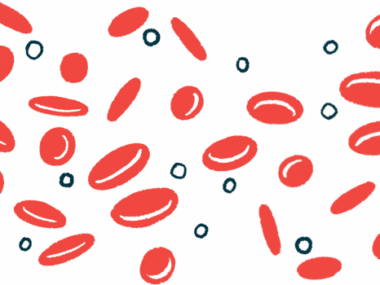PerkinElmer Makes Donation to Expand SCD Screening in Ghana
Goal is to boost screening to 50% of all babies born in the West African country
Written by |

PerkinElmer has donated to an initiative that would extend newborn screening for sickle cell disease (SCD) in Ghana.
The goal, which is expected to be achieved by 2030, is to boost screening from its current 4% to 50% of all babies born in the West African country.
The company provides easy-to-use laboratory equipment for fast, reliable, and cost-effective screening of SCD, in collaboration with the Sickle Cell Foundation and Ghana Health Services.
“PerkinElmer is committed to helping the government of Ghana develop sustainable end to end solutions that focus on screening and diagnosis, in addition to comprehensive care for SCD,” Marika Kase, business director of reproductive health at PerkinElmer, said in a press release.
SCD is caused by mutations in the beta-globin gene that contains instructions to produce a portion of hemoglobin — the protein in red blood cells that is responsible for oxygen transport. Mutations lead to the production of a faulty version of the protein that causes red blood cells to become misshapen and acquire a sickle-like shape.
Such cells have difficulties passing through blood vessels, potentially blocking blood flow and reducing oxygen supply to tissues and organs. This could lead to tissue damage, inflammation, and severe pain crises. Moreover, sickle cells break down and die faster than normal red blood cells, leading to anemia, one of the hallmark symptoms of the disease.
Although seen in all ethnic groups, SCD is more common in individuals of African, Mediterranean, Middle Eastern, or Indian ancestry.
The disease is typically diagnosed with a blood test that looks for abnormal hemoglobin. In many countries, including the U.S., these tests are included in newborn screening programs.
Ghana’s government hopes to establish a country-wide screening program, which requires increasing the country’s capacity for higher screening coverage and sample volumes. PerkinElmer provides flexible and scalable laboratory solutions that, once implemented at the Noguchi Memorial Institute for Medical Research, are expected to increase the center’s screening capacity for an additional 50,000 babies per year.
The laboratory solution offered by PerkinElmer consists of a device that tests blood samples, including whole blood and dried blood spot — a minimally invasive method commonly used to collect blood from newborns — to detect normal and faulty hemoglobin forms. This is critical for the early diagnosis and treatment of patients with SCD and other hemoglobin-related diseases.
The goal of this initiative, together with the Novartis Africa Sickle Cell disease program, is to educate patients and caregivers from Sub-Saharan Africa on the importance of newborn screening and early treatment.
“We would like to congratulate Ghana Health Services and the Sickle Cell Foundation for the milestones gained so far, in advancing the diagnosis and care of patients with the disease in the country,” Kase said. “We hope that this donation will facilitate development of Ghana’s SCD screening program and will therefore improve the lives of children in the region.”







